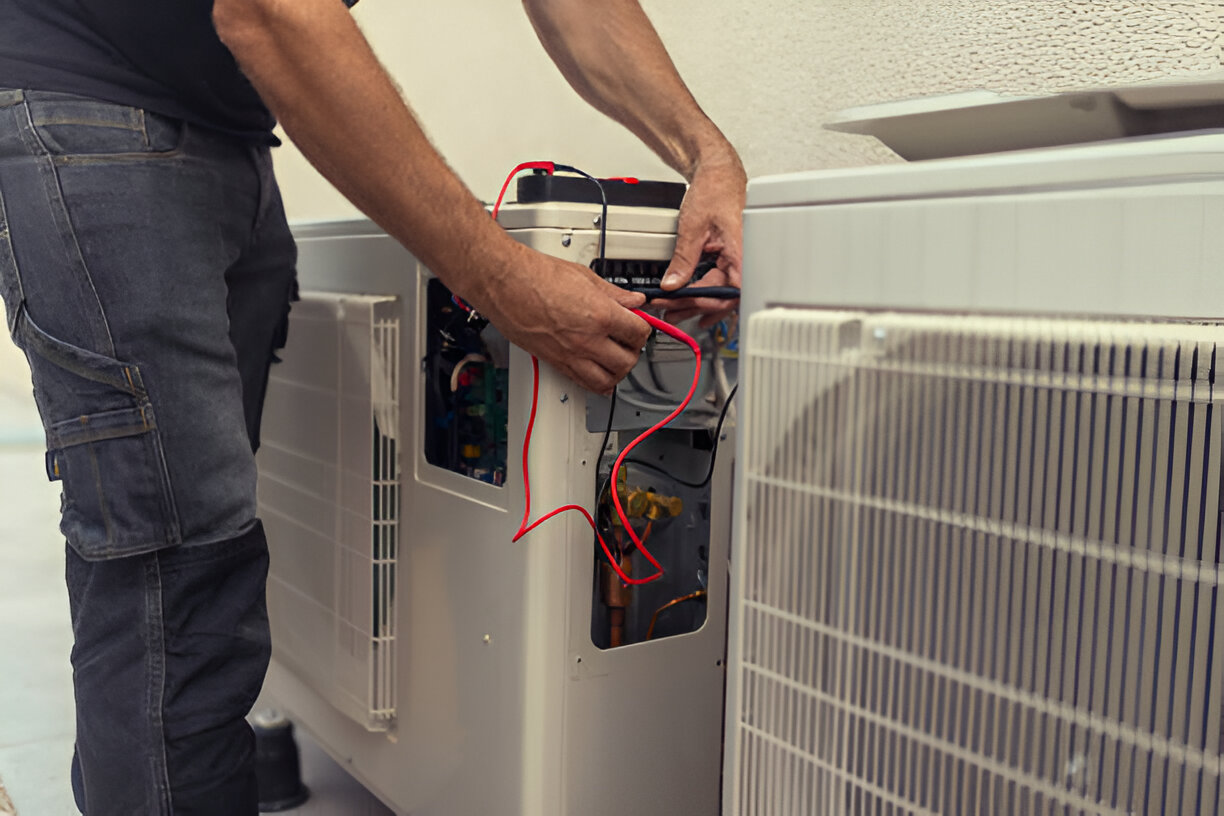Heat Pump Repair in Centennial, CO
Professional heat pump repair in Centennial, CO protects your home comfort through cold, dry winters and wide seasonal temperature swings. Heat pumps are reliable, efficient HVAC systems, but when components fail you need fast, accurate diagnostics and repairs that restore safe operation and long-term performance.

Why prompt heat pump repair matters in Centennial, CO
Centennial experiences cold winters, occasional heavy snow, and significant temperature swings between day and night. Those conditions increase demand on heat pumps, trigger frequent defrost cycles, and can accelerate wear on electrical components, reversing valves, and compressors. High altitude also reduces air density, affecting heat extraction and making proper refrigerant charge and airflow essential. Timely repairs restore efficiency, reduce energy costs, and prevent secondary damage such as frozen coils or compressor burnout.
Common heat pump problems in Centennial and how they appear
- Compressor failure
- Symptoms: Unit runs but produces little or no heating or cooling, loud humming or clicking noises, frequent circuit breaker trips.
- Typical causes: Motor failure, electrical faults, running low on refrigerant leading to overheating, or prolonged operation under extreme loads.
- Reversing valve issues
- Symptoms: Unit refuses to switch between heating and cooling modes, stuck in one mode, or erratic mode changes.
- Typical causes: Mechanical sticking, pilot valve electrical failure, or control board issues.
- Thermostat faults
- Symptoms: Unit does not turn on, short cycles, incorrect temperature reading, failure to reach setpoint.
- Typical causes: Incorrect wiring, calibration drift, dead batteries (if applicable), or communication problems with the heat pump control board.
- Refrigerant leaks
- Symptoms: Reduced capacity, ice buildup on the evaporator coil, hissing at connection points, oil stains near fittings.
- Typical causes: Corrosion, vibration loosening fittings, physical damage to lines, or manufacturing defects.
- Electrical faults and controls
- Symptoms: Unit won’t start, intermittent operation, tripped breakers, burned connectors, error codes.
- Typical causes: Faulty contactors, capacitors, relays, control boards, or aged wiring and poor connections.
Typical repair timelines (what to expect)
- Diagnostic visit: 1 to 2 hours for a full assessment and written diagnosis.
- Minor repairs (thermostat replacement, contactor, capacitor, fan motor replace): Often same-day to next-day depending on parts availability; typically a few hours on site.
- Refrigerant recharge: 1 to 3 hours if no leak repair is required.
- Leak detection and repair: Can take a few hours to multiple days if lines must be opened, brazed, and tested; timeline depends on leak location and weather access.
- Major component replacement (compressor or reversing valve): Typically half-day to a full day but can require next-day service if parts must be ordered.
- Extensive system replacement or retrofit: Multi-day project when replacing multiple major components or upgrading to a different refrigerant or system size.
Repair timelines in Centennial may be extended in winter storm conditions or when parts require special-order due to brand and configuration.
Parts replacement policies and warranty practices
- Replaced parts should be documented with part numbers and installation notes. Prefer OEM parts for compatibility and longevity, with quality aftermarket options considered where appropriate.
- Repairs can include a written workmanship warranty and parts warranty. Manufacturer warranties may apply for parts still under original coverage; labor warranties vary by provider but should be specified in the repair documentation.
- After any parts replacement, the system is pressure-tested, vacuum-pulled as required, and recharged to manufacturer-recommended specifications to ensure proper operation and longevity.
Emergency response availability and service guarantees
- Emergency response is critical for no-heat situations in cold Centennial winters. Emergency service protocols prioritize safety issues (no heat, electrical hazards, refrigerant leaks).
- Service guarantees generally include safe operation verification after repair, restoration of intended heating or cooling function, and documentation of the repairs performed. Expect clear communication around scope, parts required, and realistic timelines for emergency calls.
Preventive maintenance tips to reduce future breakdowns
- Schedule seasonal tune-ups before winter and summer peaks to verify refrigerant charge, clean coils, inspect electrical connections, and test defrost cycles.
- Replace or clean air filters and ensure adequate airflow; restricted airflow raises compressor load and shortens system life.
- Keep outdoor units clear of snow, leaves, and debris. At high altitude in Centennial, snow buildup and ice can be more common and should be gently removed.
- Monitor defrost cycles for abnormalities; excessive or failed defrosting often signals a control or sensor issue.
- Insulate refrigerant lines and check for brittle or cracked seals caused by dry climate effects.
- If your home is older or has duct issues, consider duct sealing and airflow balancing to reduce strain on the heat pump.
Final considerations for Centennial homeowners
Heat pump repair in Centennial, CO requires awareness of local climate impacts such as cold temperatures, snow, and high altitude effects on heat pump performance. A clear, systematic diagnostic approach identifies root causes and reduces repeat failures. When repairs are necessary, expect documented diagnoses, transparent parts policies, standard workmanship guarantees, and emergency response paths for urgent no-heat scenarios. Regular maintenance and early attention to symptoms preserve efficiency, extend equipment life, and maintain consistent comfort throughout Centennial winters and summers.
Customer Testimonials
.webp)
Buy Today, Pay Over Time
Wisetack - 0% APR up to 24 months (on approved credit)







